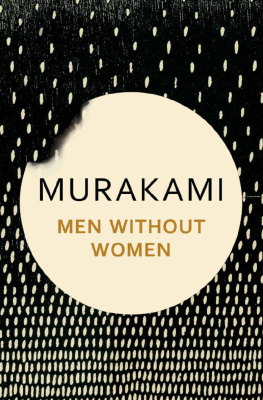Haruki Murakami
Haruki Murakami: Storytelling and Productive Distance studies the evolution of the monogatari or narrative and storytelling in the works of Haruki Murakami. Author Chikako Nihei argues that Murakamis power of monogatari lies in his use of distancing effects; storytelling allows individuals to cross into a different context, through which they can effectively observe themselves and reality. His belief in the importance of monogatari is closely linked to his generations experience of the counterculture movement in the late 1960s and his research on the 1995 Tokyo sarin gas attack caused by the Aum shinriky cult, and major events in post-war Japan that revealed many peoples desire for a stable narrative to interact with and form their identity from.
Chikako Nihei is an assistant professor at Yamaguchi University. She received her PhD in Japanese at the University of Sydney. Her publications include The Productivity of a Space In-between: Murakami Haruki as a Translator (2016) and Resistance and Negotiation: The Herbivorous Men and Murakami Harukis Gender and Political Ambiguity (2013).
Routledge Studies in Contemporary Literature
25 Prequels, Coquels and Sequels in Contemporary Anglophone Fiction
Edited by Armelle Parey
26 From the Delivered to the Dispatched
Masculinity in Modern American Fiction (19691977)
Harriet Stilley
27 Theorizing Ethnicity and Nationality in the Chick Lit Genre
Edited by Erin Hurt
28 Extreme States
The Evolution of American Transgressive Fiction 19602000
Coco DHont
29 Transmodern Perspectives on Contemporary Literatures in English
Edited by Jessica Aliaga-Lavrijsen and Jos Mara Yebra-Pertusa
30 Origin and Ellipsis in the Writing of Hilary Mantel
An Elliptical Dialogue with the Thinking of Jacques Derrida
Eileen Pollard
31 David Foster Wallace and the Body
Peter Sloane
32 Haruki Murakami
Storytelling and Productive Distance
Chikako Nihei
For more information about this series, please visit: https://www.routledge.com
First published 2019
by Routledge
52 Vanderbilt Avenue, New York, NY 10017
and by Routledge
2 Park Square, Milton Park, Abingdon, Oxon, OX14 4RN
Routledge is an imprint of the Taylor & Francis Group, an informa business
2019 Taylor & Francis
The right of Chikako Nihei to be identified as author of this work has been asserted by her in accordance with sections 77 and 78 of the Copyright, Designs and Patents Act 1988.
All rights reserved. No part of this book may be reprinted or reproduced or utilised in any form or by any electronic, mechanical, or other means, now known or hereafter invented, including photocopying and recording, or in any information storage or retrieval system, without permission in writing from the publishers.
Trademark notice: Product or corporate names may be trademarks or registered trademarks, and are used only for identification and explanation without intent to infringe.
Library of Congress Cataloging-in-Publication Data
Names: Nihei, Chikako, author.
Title: Haruki Murakami : storytelling and productive distance / Chikako Nihei.
Description: New York, NY : Routledge, 2019. |
Series: Routledge studies in contemporary literature ; 31 |
Includes bibliographical references and index.
Identifiers: LCCN 2019009066 | ISBN 9780367256418 (hardback)
Subjects: LCSH: Murakami, Haruki, 1949Criticism and interpretation. | Storytelling. | Narration (Rhetoric) Classification: LCC PL856.U673 Z835 2019 |
DDC 895.63/5dc23
LC record available at https://lccn.loc.gov/2019009066
ISBN: 978-0-367-25641-8 (hbk)
ISBN: 978-0-367-26665-3 (ebk)
Typeset in Sabon
by codeMantra
For my parents
The research on which this book is based took its first form in my 2013 PhD thesis, entitled Storytelling and Productive Distance: Representations of Otherness in Murakami Haruki. I wish to thank various people for their contributions to this project. My deepest gratitude goes to Associate Professor Rebecca Suter, my PhD supervisor at the University of Sydney. I am proud from the bottom of my heart to be her first doctoral student. For professional and institutional support, Dr. Olivier Ansart, Dr. Lionel Babicz, Professor Matsui Sakuko, Professor Yasuko Claremont, Associate Professor Romit Dasgupta, and Professor Motoyuki Shibata. For writing support, Jeffrey Luz-Alterman. For friendship and emotional support, Dr. Katsuhiko Suganuma, Dr. Andrew Houwen, Dr. Gitte Marianne Hansen, Keisuke Hayashi, and Cabby Vial. I would also like to send my special thanks to Professor Matthew Carl Strecher, who has always given me encouraging comments about my research and constantly pushed me to make the thesis into a book. Finally, I am very grateful for my parents constant support and help throughout my study and career.
Murakami Haruki is one of the most renowned Japanese authors in the world today. His work has been translated into more than 50 languages. There has been a boom in Murakami Haruki studies and there are entire conferences, both domestic and overseas, devoted to him. Murakami Haruki is also a popular subject for university courses both inside and outside Japan.
The purpose of this monograph is to analyse the evolution of what Murakami describes as the power of monogatari, which I translate as storytelling or narrative, both in Murakami Harukis works and in his career. I argue that Murakamis power of monogatari lies in his use of distancing effects, whereby individuals cross into a different context, through which they can effectively observe themselves and reality. The distancing effects I examine in this book can be compared to Viktor Shklovskys theory of defamiliarisation in Art as Technique. According to Shklovsky, [i]f we start to examine the general laws of perception, we see that as perception becomes habitual, it becomes automatic. Thus, for example, all of our habits retreat into the area of the unconsciously automatic (Newton, 1997: 34). Shklovsky argues that automated perception can be defamiliarised through art: [t]he technique of art is to make objects unfamiliar (ibid.: 4), which encourages the reader to question their familiar perception and recognise problems that can be obvious from other perspectives. These distancing effects can be demonstrated in a variety of ways through an analysis of Murakamis writing and his career. As will be discussed throughout the book, its effects result in expanding ones perspectives, and this helps deal with his/her mental difficulties and build subjectivity.
Japanese novelist Maruya Saiichi had already described Murakamis emergence as an event for Japanese literature (Maruya, 1979: 118) when the author won his first literary prize in 1979 for his first novel Kaze no uta o kike (Hear the Wind Sing); indeed, in the following years, Murakami turned out to be the most popular and most controversial contemporary writer in Japan. What is often regarded as problematic, especially among Japanese intellectuals, is his wilful distancing from Japan, Japanese culture, Japanese literature, and Japanese language. The lack of apparently Japanese elements in his work, his frequent reference to Euro-American cultural products and literature, his use of what they call translationese language projected his image as a not-very authentically Japanese author. On the other hand, the act of distancing from Japan constitutes an essential element of his work, considering the authors prolific translation of American novels and its impact on the formation of his language. The theme of distancing is equally seen in his characters, who are often problematically described as detached, passive, and apathetic. Yet, it is this style of personality that supports the popularity of Murakamis novels both inside and outside Japan.











